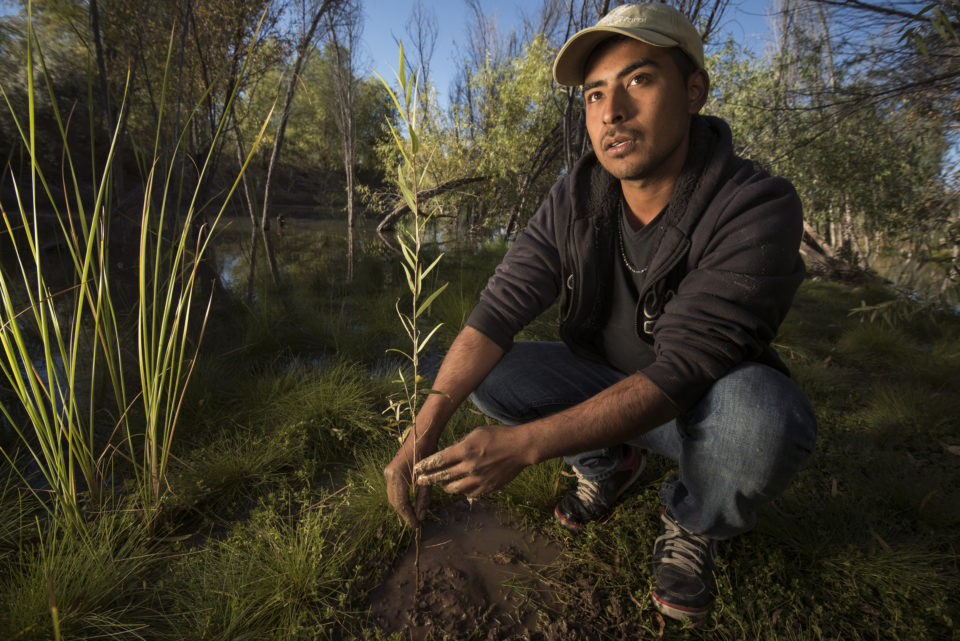Being a binational organization
Our supporters share an interest in the natural world, and our staff works hard to align our efforts to ensure natural resources, vibrant communities and enriching economies. It’s something we feel deeply. Our goals are not limited to any country or community, and in fact they transcend all kinds of boundaries just like the features of our natural world that flow and migrate across borders without giving demographics, economics or politics a thought.
Here’s how Sonoran Institute describes it:
“I wish all my colleagues could live the experience of a day’s work in the field in our restoration sites, which might include planting a seed in the nursery, planting a tree and watering it, and then having taquitos for lunch under the shade of a cottonwood, willow or mesquite.”
–Sandra Ortiz, riparian restoration coordinator (Mexicali)
“I am often surprised with how often considerations stop at the border. For example, look at most maps—if you didn’t know better you might assume rivers and watersheds stop at the international boundary line!”
–Amanda Smith, program associate (Tucson)
“Being a binational organization is a real reflection of the saying that conservation work knows no boundaries.”
–John Shepard, senior director of programs (Tucson)

“The Phoenix metro region is one big hot sprawling suburb that attempts to swallow souls as the boredom and absurdity of summer scours at the roots that keep us here, but Phoenix ain’t all bad. As the region grows, there are more and more of us here fighting the good fight and championing nature and the services it provides. Thankfully, we have great access to amazing landscapes and ecosystems in which we can play, explore, discover, and recover so we can return to work ready for more.”
–Jeremy Stapleton, director of climate resilience (Phoenix)
“I would like everyone to be able to experience what we biologists are fortunate to experience: to be in a dark night full of stars in the estuary (seeing comets and the universe in question), waiting in the boat for the next zooplankton collection hearing the water and the wind, and the singing of the dolphins. Despite the pickets of flies, the cold of dawn, being wet and sleepless, I feel satisfaction in the field. I know that together with my team we are the only humans for kilometers performing actions that translate in numbers to justify more water for the Colorado River delta and better conditions for this wonderful estuarine habitat.”
–Elizabeth Díaz, estuarine ecological monitoring coordinator (Mexicali)
“I am extremely proud to work for a binational organization because it shows that we are all connected by the natural world and by working together to preserve it, everybody benefits. At the end of the day we are all just humans who ultimately rely on what our planet gives us.”
–Elise Christmon, development and finance coordinator (Tucson)
This is part 4 of 5 in a series about being a binational organization. Read the other posts:
- A border is not a barrier (Introduction)
- Challenges that lead to growth
- Challenges that are persistent
- Pride, gratitude and generosity
By: Corinne Matesich, Marketing Communications Manager
